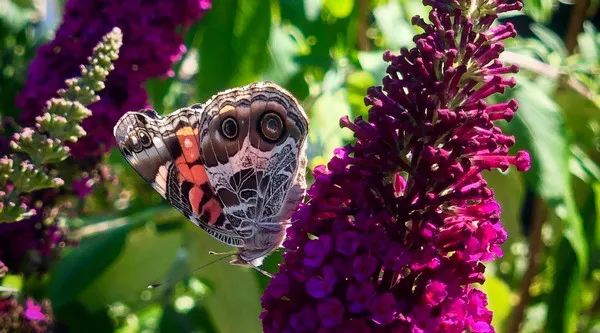Mint (Mentha spp.) is a popular herb known for its refreshing scent, culinary uses, and medicinal properties. Beyond its delightful aroma and flavor, mint also possesses natural pest-repellent qualities. This characteristic makes it a valuable addition to gardens, homes, and even agricultural settings. In this article, we will explore the pests that mint can repel and how to harness its potential as a natural pest control solution.
1. Mosquitoes
Mosquitoes are notorious for their irritating bites and ability to transmit diseases such as malaria, dengue fever, and Zika virus. However, the strong aroma of mint acts as a natural deterrent for these blood-sucking pests. Planting mint around outdoor seating areas, entry points, or using mint essential oil as a repellent can help keep mosquitoes at bay.
2. Ants
Ants are unwelcome guests in many homes and gardens, often causing nuisance by scavenging for food and creating unsightly trails. Mint’s strong scent acts as a natural deterrent, disrupting the pheromone trails that ants follow to locate food sources. Placing mint leaves or spraying mint-infused water along ant trails and entry points can help repel these pesky insects.
3. Flies
Flies are not only annoying but can also carry disease-causing bacteria, posing a health risk to humans and animals. Mint’s aromatic properties, particularly spearmint and pennyroyal varieties, are effective in repelling flies. Hanging dried mint bundles, using mint essential oil diffusers, or applying mint-based fly repellents can help reduce the presence of flies in homes and outdoor spaces.
4. Moths
Moths can be a nuisance, especially when they infest closets and storage areas, causing damage to clothing, fabrics, and food products. Mint’s strong scent acts as a deterrent for moths, helping to keep them away from your belongings. Placing dried mint leaves or sachets containing mint leaves in closets, storage boxes, or pantries can help protect your items from moth infestations.
5. Aphids
Aphids are small sap-sucking insects that can wreak havoc on gardens, damaging plants and spreading viruses. Mint contains natural compounds like menthone and limonene that repel aphids. Interplanting mint with vulnerable plants or using mint-based sprays can create a protective barrier, deterring aphids from infesting your garden.
6. Fleas
Fleas are a common nuisance for pets and can quickly infest homes. Mint’s strong scent, particularly peppermint, acts as a deterrent for fleas. You can create a homemade flea spray by steeping mint leaves in hot water, straining the liquid, and using it as a spray on your pet’s bedding or directly on their fur (after ensuring it is safe for your specific pet). Additionally, planting mint in your garden or using mint-infused products can help repel fleas from outdoor areas.
7. Rodents
Mint’s potent aroma is known to repel rodents such as mice and rats. Growing mint near entrances, along the perimeter of your property, or using mint essential oil in areas where rodents are a concern can deter them from entering. However, it’s important to note that mint may not eliminate an existing rodent infestation but can serve as a preventive measure.
8. Cabbage Moths
Cabbage moths are common pests that damage cabbage, broccoli, kale, and other brassica crops. Mint, especially spearmint, has been found to repel cabbage moths due to its strong fragrance. Planting mint around brassica crops or using mint-based sprays can help protect these plants from infestations.
9. Squash Bugs
Squash bugs are a significant threat to cucurbits such as squash, pumpkins, and zucchini. The scent of mint acts as a natural repellent, discouraging squash bugs from feeding on these plants. Planting mint near cucurbit crops or using mint-based sprays can help reduce the presence of squash bugs and protect your harvest.
10. Spider Mites
Spider mites are tiny pests that infest a wide range of plants, causing damage by sucking sap and leaving behind webbing. Mint’s strong fragrance can deter spider mites and inhibit their reproduction. You can create a mint-based spray by blending mint leaves with water and applying it to infested plants, helping control spider mite populations.
In conclusion, mint’s aromatic properties make it an effective natural pest repellent against a variety of common pests. Whether you’re dealing with mosquitoes, ants, flies, or garden pests like aphids and cabbage moths, harnessing the power of mint can provide a non-toxic and environmentally friendly solution. By incorporating mint plants, dried leaves, essential oils, or mint-infused sprays strategically, you can create an inhospitable environment for pests and enjoy the benefits of a pest-free space.


